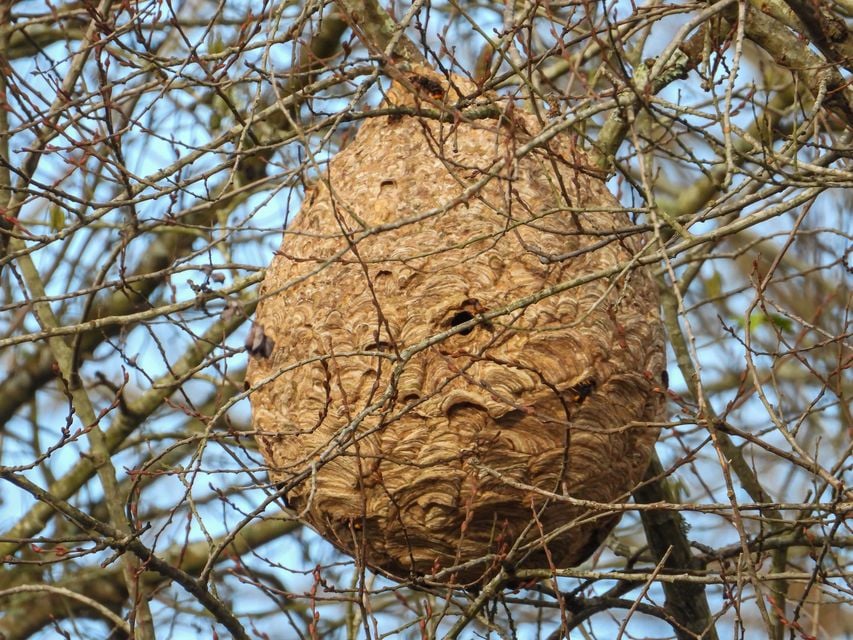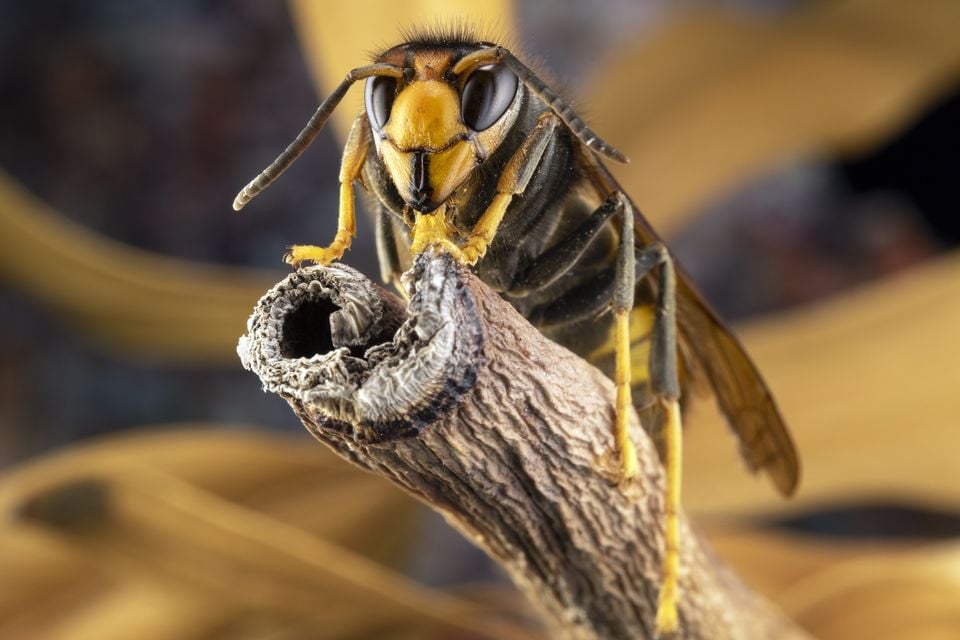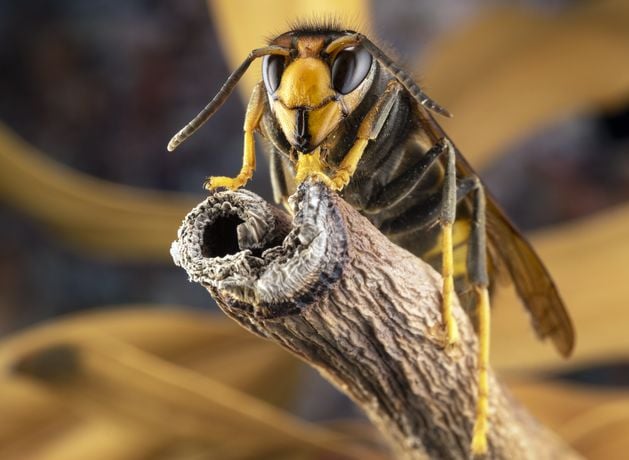It follows confirmation of the first Asian hornet in Northern Ireland, which was captured in the same area on Friday, and suggests the existence of a nest.
NIEA officials are now moving to employ ‘track and trace’ methods to establish the location of, and remove, any potential nest in the area.
An Asian Hornet was captured by a resident in the Co Down area on Friday October 10.
Upper Bann MP Carla Lockhart has expressed “deep concern” as one of the first elected representatives to raise the issue of bee protection and the absence of a dedicated Bee Inspector for Northern Ireland with DAERA Minister Andrew Muir in May.
She said this latest development underlines the urgent need for a more robust biosecurity response.
“Confirmation that an Asian Hornet, also known as the Yellow Legged Hornet, has been detected in Northern Ireland is extremely worrying,” said the MP.
“This invasive species poses a serious threat to our native pollinators, particularly honeybees and wasps, and could have devastating consequences for local biodiversity and agriculture if it becomes established.
“Almost six months ago, I raised concerns with Minister Muir about the absence of a Bee Inspector in Northern Ireland. The inspector’s role is vital in monitoring and responding swiftly to threats from predators, such as the harmful Asian Hornet. Unfortunately, those warnings now appear to have been well-founded.”

Asian Hornet nest. Credit: Getty Images
The DUP Agriculture, Environment and Rural Affairs spokesperson added: “Relevant authorities must ensure that the Asian Hornet doesn’t get established in Northern Ireland.
“Surveillance, monitoring and containment efforts must be stepped up, and further guidance is available in the NI Rapid Response Contingency Plan for Asian Hornet (2000) which can be viewed on the DAERA website.
“I am calling on DAERA to act swiftly and decisively on this matter. Hopefully this was an isolated sighting, but it is vital to determine if further infestations or nests are present. The Minister must also give a renewed commitment to appoint a Bee Inspector to co-ordinate responses to future sightings and support local beekeepers.
“I would urge members of the public, particularly those involved in beekeeping or gardening, to remain vigilant and report any suspected sightings immediately to DAERA or the Northern Ireland Environment Agency (NIEA). Public awareness and prompt reporting are key to preventing this species from gaining a foothold in Northern Ireland.”
The Asian Hornet is a harmful invasive species originating from east Asia and first recorded in Europe in 2004.
Individuals and nests are increasingly recorded in southern counties of England and two nests were found and destroyed in the Cork area of the Republic of Ireland earlier this summer.
The species is a highly effective predator of insects including honeybees, wasps and other important pollinators, such as hoverflies. Due to its aggressive nature and feeding habits, it could have a serious impact on native insect biodiversity and on pollination services more widely.
Following the reported sighting in the Dundonald area, NIEA officials have deployed specialist equipment and commenced a monitoring programme involving live traps and visual survey to determine if this is an isolated individual or whether there may be a nest.
NIEA previously said that if other Asian Hornets are detected and confirmed, intensive monitoring will continue to trace and remove any nest, with monitoring afterwards to ensure that there is no further Asian Hornet activity.

Further sightings of Asian Hornets have been made in NI. Credit: Getty Images
News Catch Up – Wednesday 15th October
NIEA officers are being assisted by colleagues from the National Biodiversity Data Centre, as part of the Shared Island Biosecurity and Invasive Species Initiative, benefiting from the practical experience they have gained from recent Cork and Cobh incursions.
Andrew Muir, Minister for Agriculture, Environment and Rural Affairs, has said: “This is a harmful species that I do not wish to see becoming established in Northern Ireland as it presents a serious threat to both biosecurity and local ecology, particularly valuable pollinating insects.”
The public is urged to be vigilant and report any suspect insects, ideally with a photograph, to DAERA via the Asian Hornet Watch app at https://www.brc.ac.uk/app/asian-hornet-watch or via the CEDaR invasive species online recording at http://www2.habitas.org.uk/records/ISI
Suspected nests should not be disturbed but reported immediately.
